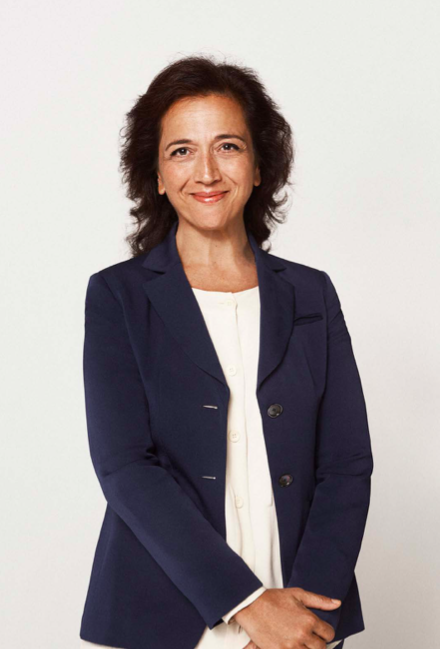
BRANDS AS SOCIAL ACTORS
By the Editorial staff
People want a better world. People want a world that represents their values. Those same people demand that companies and brands take a stand on many social, environmental, cultural and sometimes even political issues. Companies have realised how important their words, stories and ideas are to the world and to individuals. They are increasingly seen as real protagonists not only in the economic sphere, but also in various social battles.
There has been a big change in recent years. Compared to the past, many brands relate more and more to their consumers, entering into a relationship of perfect harmony and empathy with them, and this is how they have understood how important their corporate reputations are, also as a result of their social commitment. Companies are therefore required to pay greater attention to all the actions they undertake and, at the same time, are much more sensitive to issues that go beyond pure business: from safeguarding the planet to inclusiveness, from female empowerment to cultural battles.
Social responsibility is a cultural journey for companies.
Concepts such as diversity, inclusion and social activism allow brands to combine ethics and business, raising awareness of important issues such as discrimination and social injustice, while at the same time enhancing their image and essence. In order to do this, it is important to also work on communication; it is no longer enough to address the masses, companies must relate to individuals; it is not sufficient to generalise, instead, products and messages need to be differentiated to support diversity in its various cultural and social manifestations. Today, as companies and brands, we must have the courage to have uncomfortable conversations, to do the right thing, to be brave. The most advanced brands use this approach to enhance their brand. And they set an example for all others to follow. The company Mattel has used its best-known brand of dolls, Barbie – which until recently promoted certain anachronistic beauty standards – as an innovative means of highlighting gender differences, inclusivity and female empowerment, giving children all over the world a new positive role model to look up to. Thus, Barbie dolls of different ethnicities were created, with realistic body types, doing jobs that have so far – incorrectly – been associated with males.
Another example that has enjoyed considerable success is Always, a company that produces feminine hygiene products. Its best-known campaign is the social experiment called “Like A Girl”. The idea was to ask adults and children simple questions and to film their answers – questions such as: What does it mean to do things like a girl? How does a girl run? How does a girl fight? The result was surprising. The children used movements and poses that expressed self-esteem, strength and determination, because they did not yet understand the prejudices contained in the expression "like a girl". Unlike the children, adults, who have absorbed gender stereotypes, used different movements that clearly expressed the concept: doing things like a girl is synonymous with weakness and frivolity. The brand hoped with this campaign to change people’s perception, to create a different future in which "like a girl" is no longer considered an insult.
These are just two examples, but fortunately more and more brands are showing that they are sensitive to topics like gender stereotypes and inclusion, by also portraying gender fluid people in their communications and advertising. It is clear that in order to bring out the social voice of a brand, or its activism, it is necessary to start with its very essence, to identify its purpose in the community, its vision of the world and of the future. We are talking about a really epoch-making transformation for companies. A transformation that needs to include all facets of an organisation, inside and outside.
At QVC we believe in the power of a diverse, fair and inclusive organisation, with different points of view on what we do and how we do it. That is why we have created several global projects and initiatives in recent years. One of the most important of these is the introduction of the concept of Team Member Resource Groups – voluntary, company-sponsored groups created to build a community and support diversity, equity and inclusion (DE&I) in the workplace and in the marketplace. Our organisation’s commitment to DE&I sees all countries that QVC operates in working together to make the project even more meaningful, fostering a sense of community, shared values and change within our community. QVC is aware that every country has a different track record on these issues, and therefore its journey towards social awareness sometimes needs to take different paths. Specifically, QVC Italy is focusing on four themes to raise awareness:
- Ability, to turn QVC into an ideal workplace for people with different abilities;
- Gender Equity, to help parents who are part of the team to fairly revise expectations about maternal and paternal roles with regard to caring responsibilities;
- Ethnic Equity, to make QVC a highly inclusive workplace;
- LGBTQ+, to help people to not discriminate towards LGBTQ+ people inside and outside of QVC.
There is still a long way to go. Committing to and investing in issues such as diversity and inclusion should not be seen exclusively as opportunities to enhance brand reputation from a business perspective. This is a responsibility for every company and brand, and as such it should always be a social duty and a genuine commitment to create real benefits for society. Because creating a better world is the shared responsibility of all individuals, companies, brands and institutions.